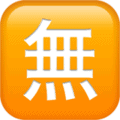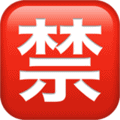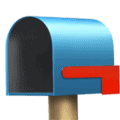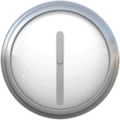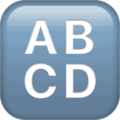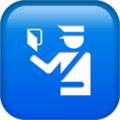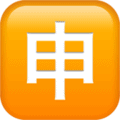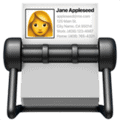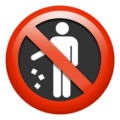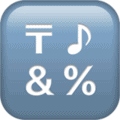Emojis, whether made with keyboard symbols or by web developers, have influenced texting and social media culture permanently. With so many updates that add hundreds more emojis each day, it’s hard to keep up with them all. Below you will discover niche emojis that have been forgotten by most texters in favor of hearts and smiley faces. As a note, these numbers are accurate at the time this article was written, but are prone to change. Thanks to emojitracker.com for the statistics.
- Japanese Acceptable Button
- Japanese Free of Charge Button
- Japanese Prohibited Emoji
- Open Mailbox with Lowered Flag
- Monorail
- Clock Face 12:30
- Input Latin Uppercase
- Passport Control
- Japanese Application Button
- Card Index
- No Littering
- Non Potable Water Symbol
- Input Symbols
Rank: 827
Suggested Uses: To show acceptance or approval
Year Approved: 2010

photo source: Apple
The Japanese “acceptable” emoji is distinct from several of the other Japanese language emojis because it is circular and orange rather than square and red. In general it’s used to indicate that something is satisfactory or has otherwise been approved. That only Japanese speakers can understand this emoji and people don’t send documents with emojis very often probably makes this symbol rare.
Did you know
Shigetaka Kurita invented the first emoji, otherwise known as “emoticon,” in 1999 using pixels.
Rank: 828
Suggested Uses: To show when something is free or a lacking
Year Approved: 2009

photo source: Apple
The Japanese Free of Charge button is probably rare for reasons similar to the Japanese Acceptable button; only a fraction of the population understands it. Additionally, because it states a word rather than an image, the user could also just type out whether something was free or lacking with the same effect. Recent tweets with this symbol are all in Japanese.
Did you know
The blood droplet emoji was quite popular upon its release with all sorts of groups, from blood donation centers to women’s health organizations, wishing to claim it as their own.
Rank: 830
Suggested Uses: To show something is not allowed
Year Approved: 2010

photo source: Apple
The Japanese prohibited emoji has stiff competition. As a language emoji, it already excludes lots of users from understanding it. On top of that, there are several other emojis that have the same meaning through image alone. Said emojis include the girl with arms crossed, the red X, the circle with a line through it and even the alarm emoji. Unsurprisingly, all of these rank much higher than the Japanese prohibited emoji.
Did you know
After hearing feedback from gun safety groups, Apple changed the gun emoji into a water gun in 2016.
Rank: 831
Suggested Uses: To indicate mail has either been picked up or not delivered
Year Approved: 2010

photo source: Apple
A mailbox’s positioning as well as whether or not it’s open or closed sends a message to the mail carrier and/or recipient. In this case, an open mailbox with a lowered flag means that outgoing mail has been picked up and/or no incoming mail has been delivered. This is one of four mailbox emojis, all positioned in different ways.
Did you know
The USPS processes 19.7 million pieces of mail every hour and handles/delivers 472.1 million mail pieces everyday.
Rank: 833
Suggested Uses: To represent a monorail
Year Approved: 2010

photo source: Apple
A monorail is a type of train that runs on a single track. It’s usually seen in theme park settings and other locations that require short distances. As a result, people don’t travel on monorails very often and some might not know what a monorail looks like at all. Plus, if someone does send a message about travel, there is a classic train emoji that is much more recognizable.
Did you know
The first monorail able to carry passengers debuted in 1825.
Rank: 834
Suggested Uses: Indicate time
Year Approved: 2010

photo source: Apple
Like the mailbox emoji, there are several clock and time keeping emojis available. It’s unclear why the 12:30 clock is so unpopular, but it could be because it tells one specific time. With that said, popularity among these sorts of emojis is varied and changes by day.
Did you know
The clock emojis were included because the review board went through a less rigorous process for vetting emojis’ potential popularity at the time.
Rank: 837
Suggested Uses: To toggle uppercase letters
Year Approved: 2010

photo source: Apple
The input Latin uppercase emoji isn’t intended for regular emoji use, which explains its rare status. Instead, it’s designed for a software keyboard or other programming screen to indicate uppercase mode as you would with the caps lock button.
Did you know
The most popular emojis of 2020 were the crying-laughing emoji and the crying emoji. Based on the events of the previous year, these feel like accurate representations of people’s texts and other messages.
Rank: 838
Suggested Uses: Indicate a passport or border check
Year Approved: 2010

photo source: Apple
The passport control emoji is quite unpopular, ranking as one of the least used emojis fairly consistently. People don’t often discuss borders or passports and, even when they do, this emoji is not clear in translating that message. Plus, with limited international travel due to the pandemic, there is even less reason to use this emoji.
Did you know
The first British passport was created in 1914 under the British Nationality and Status Aliens Act.
Rank: 839
Suggested Uses: Job application or year of the monkey
Year Approved: 2010

photo source: Apple
In Japanese, this symbol means request or application and is used in the context of a job or contact form. In Chinese, the characters represent the monkey from the Chinese zodiac. As the year of the monkey occurs once every few years and job forms aren’t usually completed via text or with emojis, it isn’t surprising that this symbol is so rare.
Did you know
The years of the monkey in the Chinese Zodiac are 2018, 2016, 2004, 1992, 1980, 1968, 1956.
Rank: 840
Suggested Uses: Indicate address or personal information also found on business cards
Year Approved: 2010

photo source: Apple
A card index, also known as a Rolodex, is a business card organizer used before online address books and cell phone contact lists became available. Card indexes aren’t used much anymore, explaining the emoji’s low ranking. Despite its rarity, however, web developers put a lot of effort into its look. Apple, for example, has detailed contact information about a woman named Jane Appleseed on the card that sticks out. She even shares a Cupertino, CA zip code with Apple.
Did you know
Some users mistake this emoji for something related to documents or reading because it looks like a notebook.
Rank: 841
Suggested Uses: Indicate that littering is prohibited
Year Approved: 2010

photo source: Apple
The no littering emoji is self explanatory: it tells people not to litter. While this concept is more or less universal, the emoji is not. This is probably because the symbol works better as a sign than as a text message. People don’t have much reason to text individuals not to litter or send them random signs.
Did you know
Littering fines can cost up to thousands of dollars and include additional community service clean up.
Rank: 842
Suggested Uses: To show that water is not safe to drink
Year Approved: 2010

photo source: Apple
The non-potable water emoji is probably rare for a few reasons. First, its meaning is unclear. It could also indicate that a faucet is broken. Second, if someone was about to consume non potable water, other people would most likely tell them directly since it’s such an urgent issue. Third, non-potable water is usually a problem in more rural areas where phone signals might not be available.
Did you know
According to the CDC, about 780 million people worldwide don’t have access to an improved water source and about 2.5 billion don’t have access to improved sanitation facilities.
Rank: 845
Suggested Uses: Input symbols on a software keyboard
Year Approved: 2010

photo source: Apple
Like the input uppercase Latin letters emoji, the input symbols emoji is meant for coding purposes. The glyphs on the emoji are a Japanese postal mark, a music mark, an ampersand or @, and percentage sign. Its random symbols that can’t stand for anything else, as opposed to the input numbers and letters emojis, make this the rarest emoji.
Did you know
There is a twitter account called @leastusedemojibot that’s programmed to bring attention to the rarest emojis. It unfortunately hasn’t been updated for a while.


